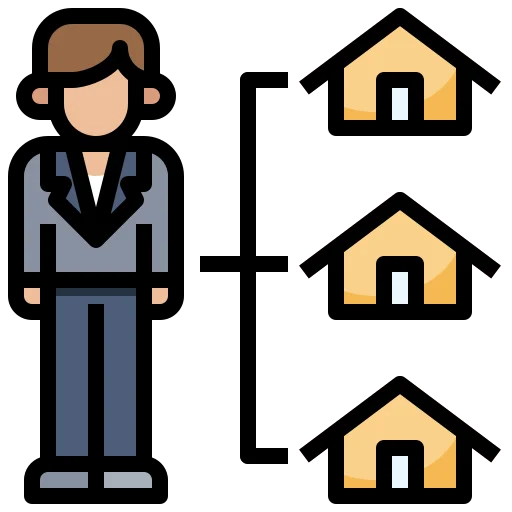Now Reading: Real Estate Burnout Prevention A Wellness Guide
-
01
Real Estate Burnout Prevention A Wellness Guide
Real Estate Burnout Prevention A Wellness Guide

Real estate burnout prevention is an essential practice for professionals in the industry, where long hours, high stress, and unpredictable schedules are common. The fast-paced environment of real estate often leads to burnout, a state of physical, emotional, and mental exhaustion that can affect productivity and well-being. Recognizing the signs of burnout early and adopting strategies for burnout prevention can help real estate professionals maintain their health, motivation, and career longevity. This guide provides practical steps to prevent burnout while ensuring that professionals can stay engaged and effective in their work.
Understanding Real Estate Burnout
Real estate burnout prevention begins with understanding what burnout is and why it happens. Real estate professionals face unique stressors: tight deadlines, high expectations from clients, and the need to constantly be available. These pressures can build up over time, leading to a decrease in performance, feelings of apathy, and even physical symptoms like headaches or insomnia. While these challenges are inherent to the profession, addressing them proactively through real estate burnout prevention strategies can mitigate their impact.
Identifying the Symptoms of Burnout
Real estate burnout prevention requires self-awareness. Recognizing the symptoms early can prevent a more severe breakdown later on. Common signs of burnout include:
- Fatigue: A constant sense of tiredness despite adequate sleep.
- Irritability: Feeling more frustrated than usual with clients, colleagues, or situations.
- Loss of motivation: A lack of enthusiasm for tasks that once seemed exciting.
- Physical symptoms: Persistent headaches, muscle tension, and sleep disturbances.
- Emotional exhaustion: Feeling emotionally drained after client interactions or meetings.
If these symptoms are left unchecked, they can worsen, leading to a decline in both personal and professional life. Therefore, recognizing the early warning signs is a crucial part of real estate burnout prevention.
Setting Realistic Goals and Expectations
One of the most effective strategies for real estate burnout prevention is setting realistic goals and managing expectations. In real estate, the pressure to close deals quickly can lead to overworking, which increases stress. However, setting clear, achievable goals for both the short-term and long-term can reduce this pressure. Breaking tasks into smaller, manageable parts ensures that progress is being made without overwhelming oneself.
Also, it’s important to communicate effectively with clients and colleagues about what is achievable in a given time frame. Transparent communication helps prevent unrealistic demands that could lead to burnout.
Prioritizing Time Management
Proper time management is key to real estate burnout prevention. Professionals in the industry are often juggling multiple clients, properties, and deadlines simultaneously, which can become overwhelming. Without a well-structured plan, it’s easy to get lost in the chaos.
Real estate professionals can use tools such as calendars, task management apps, or even simple to-do lists to prioritize daily activities. By setting aside time for important tasks and ensuring there is a balance between work and personal life, real estate professionals can avoid burnout. Time management also allows for flexibility in the schedule, which can reduce the stress of trying to meet rigid deadlines.
Taking Breaks and Disconnecting
Real estate burnout prevention requires regular breaks to maintain mental and physical well-being. It’s easy to get caught up in back-to-back meetings, showings, and negotiations, but taking short breaks throughout the day can help maintain focus and energy levels.
Scheduled time away from work is also vital. Many real estate professionals feel the need to always be available to clients, but constant connectivity can exacerbate burnout. Setting boundaries—such as turning off work emails or notifications after a certain hour—can help protect personal time and ensure that the professional doesn’t overextend themselves.
Staying Physically Active
Exercise plays a significant role in real estate burnout prevention by improving mood, reducing stress, and boosting energy. Real estate professionals often spend much of their time sitting in meetings or driving to showings, which can contribute to physical strain. Incorporating physical activity into daily routines—whether it’s a morning walk, yoga, or a trip to the gym—can help alleviate physical tension and provide a mental reset.
Even short bursts of physical activity, such as a 10-minute walk or stretching exercises, can provide relief from the physical and mental strain associated with real estate work.
Seeking Professional Support
Sometimes, real estate burnout prevention requires external support. Talking to a counselor or therapist can be an invaluable tool for managing stress and maintaining mental health. In addition, connecting with a mentor or peer group within the industry can provide guidance and encouragement.
There are also professional burnout prevention programs specifically designed for real estate agents. These programs can provide tools and resources to manage stress, improve time management, and foster better work-life balance. Seeking support is not a sign of weakness but rather a proactive step in maintaining career longevity.
Maintaining a Support Network
Another key aspect of real estate burnout prevention is having a strong support network. Friends, family, and colleagues can provide emotional support and practical assistance when needed. Socializing outside of work can provide an important mental break and offer a chance to reconnect with other aspects of life. Building relationships with others in the industry can also provide a sense of camaraderie, which can be especially valuable in a competitive field.
Embracing Flexibility
Lastly, real estate burnout prevention involves embracing flexibility. While the industry is often seen as demanding, professionals who can adapt to changing circumstances and adjust their schedules accordingly can avoid the burnout associated with rigid work practices. Flexibility can include adjusting working hours to fit personal needs or allowing more time for self-care during stressful periods.
Being flexible also means recognizing when to delegate tasks or ask for help. Delegation not only lightens the load but also fosters a collaborative environment where professionals can rely on each other.
Conclusion
Real estate burnout prevention is a critical practice for maintaining both personal health and professional success. By understanding the symptoms of burnout, setting realistic goals, prioritizing time management, taking breaks, staying active, seeking support, and embracing flexibility, real estate professionals can mitigate the risks of burnout. Adopting these strategies not only improves well-being but also helps maintain a sustainable, fulfilling career in the dynamic world of real estate. With consistent effort, professionals can ensure they continue to thrive in their work without compromising their health or happiness.
























